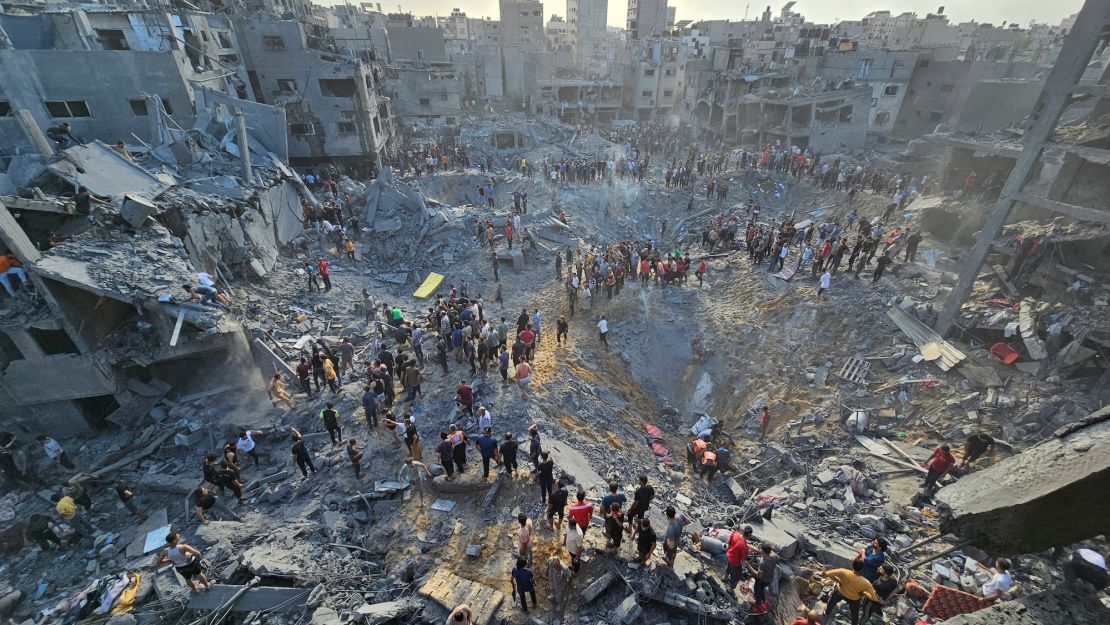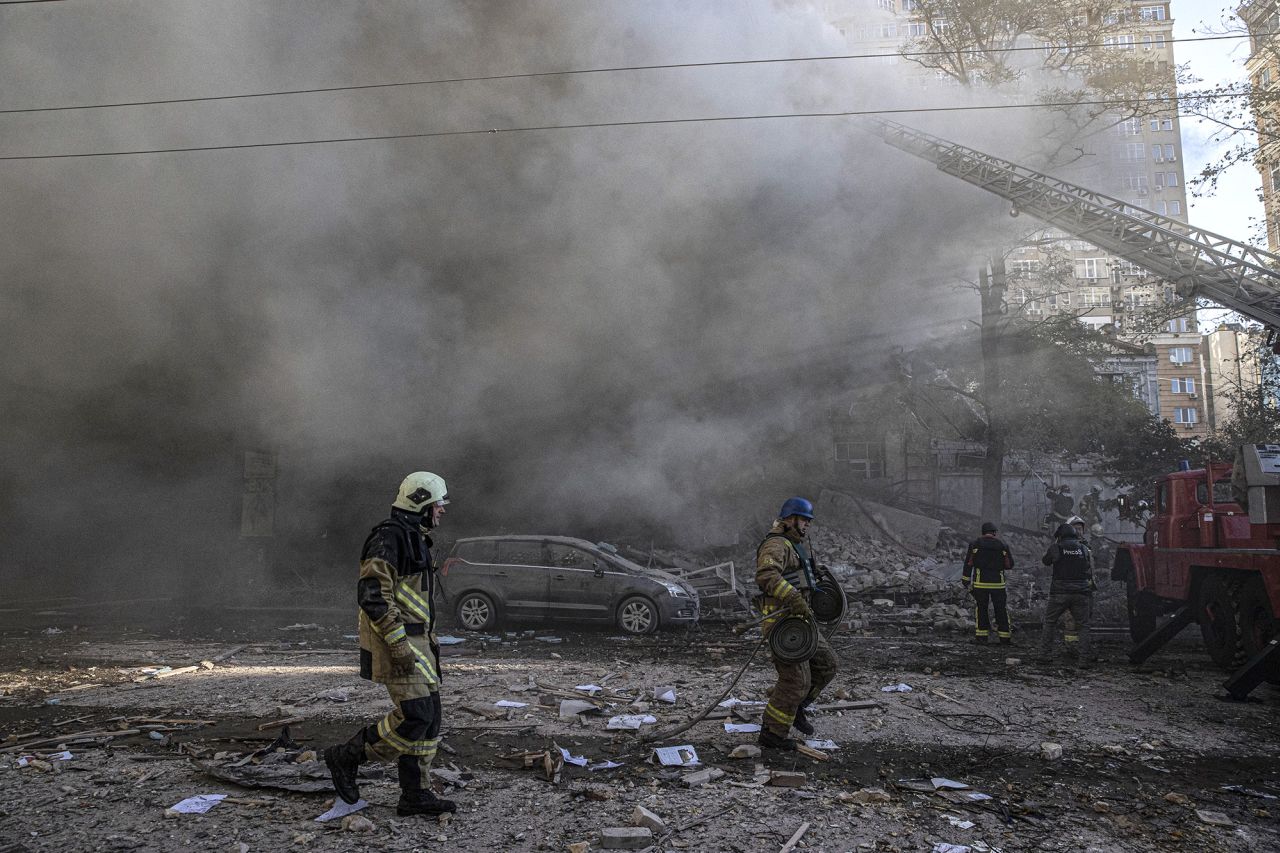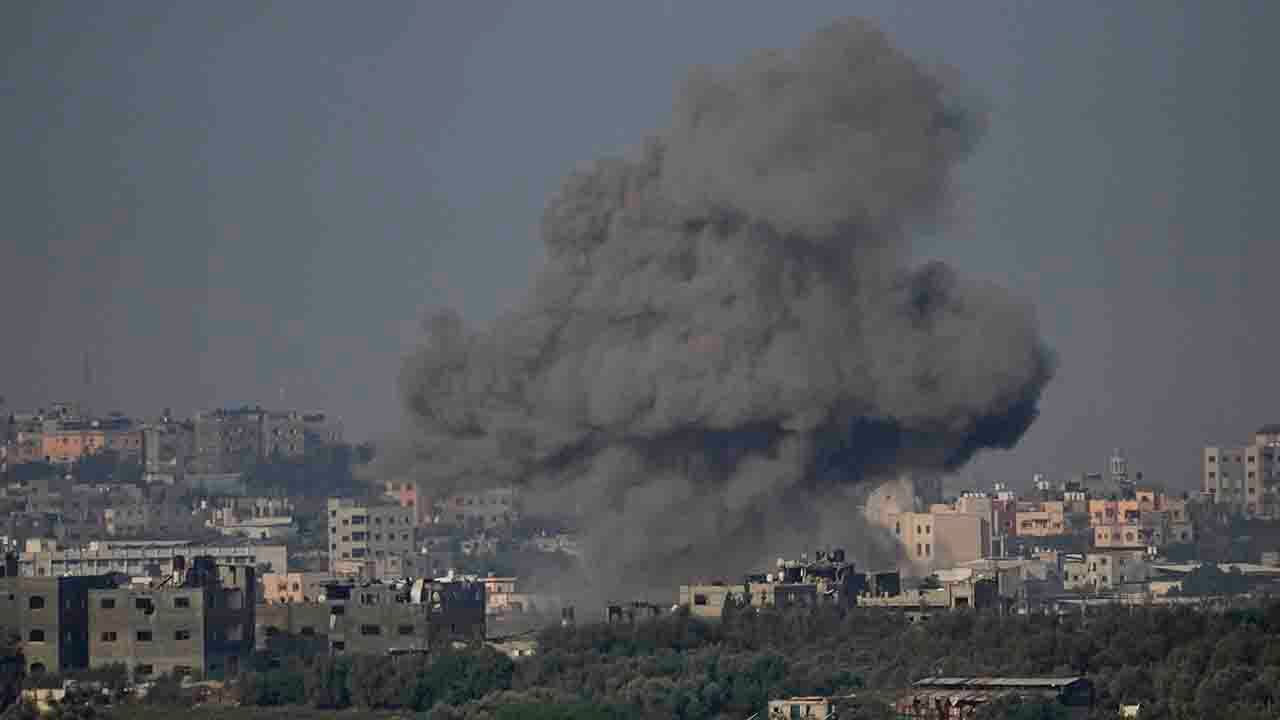Gaza Conflict: IDF Strikes Hamas Co-founder's Home
Introduction
The conflict between Israel and Hamas in the Gaza strip has escalated once again. On Friday, the Israeli Defense Forces (IDF) and the Israel Securities Authority launched a strike on Gaza City, claiming to have killed Hamas co-founder Hakham Muhammad Issa Al-Issa. This targeted strike has sparked outrage and raised tensions in the already volatile region.
Background
The IDF and the Israel Securities Authority have been engaged in a long-standing conflict with Hamas, the militant group that controls the Gaza strip. The two sides have been at odds for years, with frequent clashes and exchanges of fire. In recent months, the situation has only worsened, with both sides accusing the other of launching attacks and causing civilian casualties.
Current Scenario
The strike on Gaza City on Friday was part of the ongoing military campaign launched by the IDF in response to the rocket attacks from Hamas. According to the statement released by the IDF, the strike was a direct hit on the home of Hakham Muhammad Issa Al-Issa, one of the co-founders of Hamas. The IDF claims that Al-Issa was a key figure in the militant group and responsible for coordinating rocket attacks on Israel.
The IDF also claims that Al-Issa was involved in various other attacks against Israel, including a bombing of a bus in 2019 that injured several civilians. The strike on his home was a targeted operation aimed at disrupting Hamas' capabilities and sending a message to the group that Israel will not tolerate their attacks on civilian targets.
Reactions
The strike on Al-Issa's home has been met with strong reactions from both sides. Hamas has vowed to retaliate and has launched multiple rocket attacks on Israel following the strike. The Palestinian Authority has condemned the operation, calling it a "heinous crime" and demanding an immediate end to the violence.
The international community has also expressed concern over the escalation of violence in the region. The United Nations has called for an immediate ceasefire and urged both sides to exercise restraint. The US has also called for an end to the hostilities and expressed support for a two-state solution to the conflict.
Conclusion
The targeted strike on Hamas co-founder Al-Issa has further heightened tensions between Israel and Hamas. As the conflict continues to escalate, the international community must work towards finding a peaceful resolution to end the violence and bring stability to the region. Only through dialogue and cooperation can a lasting solution be achieved for the benefit of both sides and the people of the region.
About the People Mentioned
Hakham Muhammad Issa Al-Issa
Hakham Muhammad Issa Al-Issa was a senior Hamas military leader and a co-founder of the Izz ad-Din al-Qassam Brigades, the military wing of Hamas. He played a key role in the development of Hamas' military infrastructure and training, leading the training headquarters and serving on the group's General Security Council. Al-Issa was instrumental in building Hamas' force capabilities in the Gaza Strip. On June 28, 2025, the Israeli military confirmed that Al-Issa was killed in an Israeli airstrike targeting the al-Sabra neighborhood of Gaza City. This strike was part of ongoing Israeli operations against Hamas amid the intensified conflict in the region following the October 7, 2023 attacks. His death was publicly acknowledged by the Israel Defense Forces, which identified him as a senior figure responsible for planning and training within Hamas' military wing. His assassination reflects Israel's targeted efforts against Hamas leadership during the Gaza conflict[3][5][6]. It is important to distinguish Hakham Muhammad Issa Al-Issa from other individuals with similar names, such as Dr. Mohammad bin Abdulkarim Al-Issa, a Saudi Arabian Islamic scholar and former Minister of Justice, or Mohammad Issa, a late Hezbollah commander killed in 2015. Hakham Muhammad Issa Al-Issa's prominence relates specifically to his military role within Hamas and recent events in Gaza[1][2][3]. No further detailed biographical information about Hakham Muhammad Issa Al-Issa’s personal background or early life is publicly available in the provided sources. His current relevance is tied directly to his leadership role in Hamas and his recent assassination during the ongoing Israeli-Hamas conflict.
About the Organizations Mentioned
Israeli Defense Forces
The **Israel Defense Forces (IDF)** is the national military of Israel, established in May 1948 shortly after the country’s founding. It comprises three main branches: the Israeli Ground Forces, the Israeli Air Force (IAF), and the Israeli Navy, all operating under a unified command led by the Chief of Staff who reports to the Minister of Defense[1][2][3]. The IDF's primary mission is to safeguard the State of Israel and protect its citizens from diverse and persistent security threats[8]. The IDF is known for its **defensive strategic doctrine combined with offensive tactical execution**, reflecting Israel’s geographical vulnerabilities and security environment. It maintains a small but highly trained standing army supported by a large reserve force, with rapid mobilization capabilities[1]. The quality and professionalism of its soldiers are considered the IDF’s greatest asset, supported by advanced domestically developed weapons and technologies tailored to Israel’s specific defense needs[1][3]. Historically, the IDF has played a crucial role in Israel’s survival and regional conflicts, participating in multiple wars and counterterrorism operations. Notable achievements include Operation Entebbe in 1976, a daring hostage rescue by elite special forces such as Sayeret Matkal, and continuous innovations in urban warfare and subterranean combat against tunnel networks used by adversaries like Hamas[4][5]. The IDF’s special forces units are internationally recognized for their rigorous training and operational excellence in intelligence, counterterrorism, and unconventional warfare[4]. Currently, the IDF is undergoing significant technological and structural modernization. This includes upgrading infantry weapons (e.g., replacing M-16 rifles with the IMI Tavor series), armored vehicles (e.g., Namer and Eitan APCs), and future combat systems like next-generation tanks equipped with lasers, electromagnetic pulse weaponry, and hybrid engines. There is also a focus on enhancing joint training across air, land, and sea branches and improving reserve force readiness by streamlining
Israel Securities Authority
The **Israel Securities Authority (ISA)** is the national regulator of Israel's securities industry, established by law in 1968. Its primary mandate is to ensure an efficient capital market based on transparency and fairness, similar to the principles of U.S. securities laws developed after the 1929 Wall Street crash[1][2]. The ISA oversees and regulates various sectors, including public companies, mutual funds, ETFs, stock exchanges, and investment advisors[2][3]. **History and Development**: Securities trading in Israel began in 1935, with the Tel Aviv Stock Exchange (TASE) officially opening in 1953. The ISA's establishment in 1968 marked a significant regulatory shift, providing a framework for the TASE and its operations[1]. Over the years, the ISA has adapted to evolving financial landscapes, focusing on investor protection against fraud and insider trading[1]. **Key Achievements and Current Status**: The ISA has been proactive in regulating innovative financial services, including guidance on new business models and support for regulatory tech solutions[2]. Recently, it has taken a more aggressive stance on administrative enforcement, updating rules for qualified investors and regulating payment services[5]. The ISA collaborates with international bodies, promoting innovation and cooperation in financial services[6]. **Notable Aspects**: The ISA plays a crucial role in maintaining the integrity of Israel's capital markets. It reviews and approves stock exchange rules, ensuring fair and proper conduct[4]. The ISA's focus on innovation and its engagement with fintech solutions reflect its commitment to adapting to modern financial challenges[2][6]. Overall, the ISA is a vital component of Israel's financial infrastructure, working to protect investors and foster a robust capital market environment.
Hamas
**Hamas** is a Sunni Islamist Palestinian nationalist organization that functions both as a political party and a militant group, primarily operating in the Gaza Strip, which it has governed since 2007. Founded in 1987 by Ahmed Yassin amid the First Intifada, Hamas emerged from the Muslim Brotherhood and initially had covert Israeli support as a counterweight to the secular Palestinian Liberation Organization (PLO)[3][1]. It combines political governance with an armed wing, the al-Qassam Brigades, committed to armed resistance against Israel, which it refuses to recognize as a legitimate state[1][3]. Hamas’s political rise culminated in a 2006 electoral victory in the Palestinian Legislative Council, campaigning on anti-corruption and resistance platforms. After violently seizing Gaza from the rival Fatah faction in 2007, Hamas has maintained de facto control there despite international isolation and blockades imposed by Israel and Egypt[3]. Its governance has been marked by repeated conflicts with Israel, including major wars in 2008–09, 2012, 2014, 2021, and the ongoing intense conflict triggered by Hamas’s surprise October 2023 attack killing nearly 1,200 Israelis and taking hostages[1][2][3]. Hamas benefits from regional support, especially from Iran, which supplies funding and weapons, as well as financial and political backing from Turkey and Qatar. These alliances form part of a broader "axis of resistance" against Israel, which includes groups like Hezbollah and Palestinian Islamic Jihad[2]. Hamas also operates fundraising networks globally, sometimes using charities as fronts to support its military activities[4]. The group is designated a terrorist organization by many countries, including the United States, which has increased military aid to Israel following recent escalations[2][6]. Despite modifying its 1988 charter in 2017 to soften some language, Hamas continues to reject Israel’s legitimacy and pursues all forms of resistance[1]. Its enduring political
















